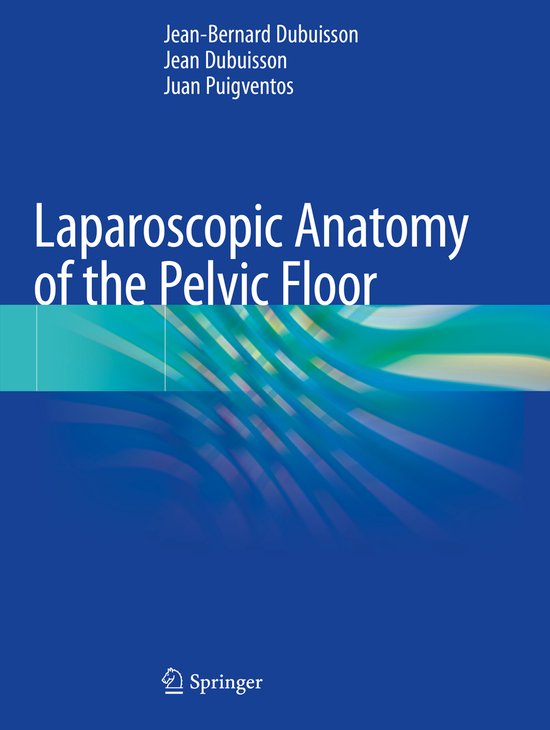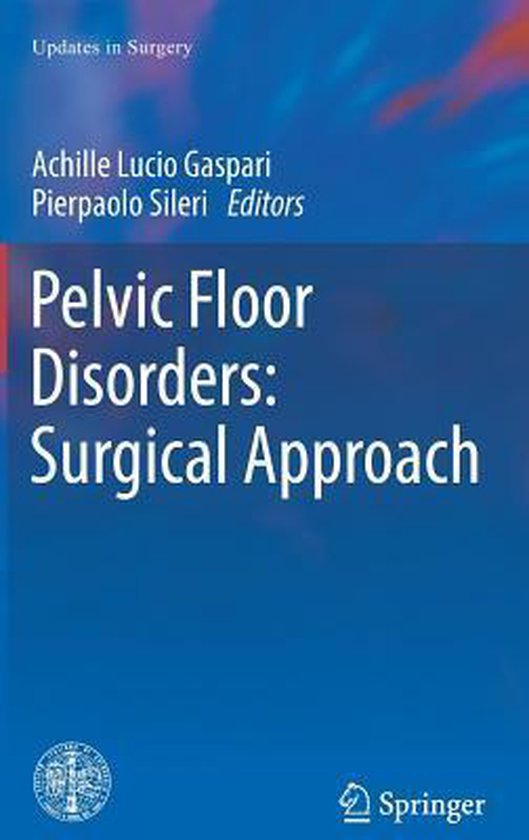
Laparoscopic Anatomy of the Pelvic Floor
Gynaecological surgery has made tremendous strides in the last 30 years, due to advances in medical imaging, operative laparoscopy, and new types of prosthesis. With the aid of laparoscopy, following subperitoneal dissections, reconstructive surgery of the pelvic floor can be made substantially more precise, more exact, and also more anatomical.
Gynaecological surgery has made tremendous strides in the last 30 years, due to advances in medical imaging, operative laparoscopy, and new types of prosthesis. Reconstructive plastic surgery of pelvic organ prolapse and of urinary incontinence have benefited from these developments. The laparoscopic sacropopexy and laparoscopic lateral suspension with meshes are two excellent examples.
In order to successfully perform these operations, detailed knowledge of the anatomy of the pelvic floor as “seen from above”, i.e., from the abdominal view, is an invaluable asset. Achieving perfect knowledge of the anatomical details is now possible, thanks to laparoscopy. With the aid of laparoscopy, following subperitoneal dissections, reconstructive surgery of the pelvic floor can be made substantially more precise, more exact, and also more anatomical. This atlas will allow gynaecologic surgeons to deepen and improve their anatomical expertise, with the aid of laparoscopy. It also describes in detail the most common laparoscopic operative techniques. The book represents a new and unique approach to anatomy studied in the living, and supplements the main content with a wealth of straightforward and clearly explained photographs.Gynaecological surgery has made tremendous strides in the last 30 years, due to advances in medical imaging, operative laparoscopy, and new types of prosthesis. Reconstructive plastic surgery of pelvic organ prolapse and of urinary incontinence have benefited from these developments. The laparoscopic sacropopexy and laparoscopic lateral suspension with meshes are two excellent examples.
In order to successfully perform these operations, detailed knowledge of the anatomy of the pelvic floor as “seen from above”, i.e., from the abdominal view, is an invaluable asset. Achieving perfect knowledge of the anatomical details is now possible, thanks to laparoscopy. With the aid of laparoscopy, following subperitoneal dissections, reconstructive surgery of the pelvic floor can be made substantially more precise, more exact, and also more anatomical. This atlas will allow gynaecologic surgeons to deepen and improve their anatomical expertise, with the aid of laparoscopy. It also describes in detail the most common laparoscopic operative techniques. The book represents a new and unique approach to anatomy studied in the living, and supplements the main content with a wealth of straightforward and clearly explained photographs.
| Auteur | | Jean-Bernard Dubuisson |
| Taal | | Engels |
| Type | | Paperback |
| Categorie | | Geneeskunde & Verpleging |





